
Our services - Cattle
Embryo collections
The collection and processing of embryos takes place in accordance with the EEC protocol (EU) 2020/686. After the flushing the donor cow is treated so that she can be placed in an ET program or inseminated for pregnancy during the next estrus. The recipient animals will be examined after the flushing to determine if they are suitable for embryo transplantation. The filtering, sorting and evaluation (according to the IETS manual) of the embryos then takes place. Once this is completed, the embryos are transplanted into the prepared recipients.
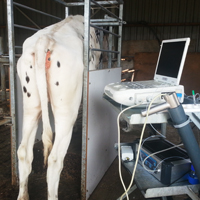
OPU / IVP
OPU (Ovum Pick-up): OPU involves retrieving immature oocytes from the ovaries using a transvaginal probe. The oocytes will be then identified and evaluated for quality. IVP (In Vitro Production) involves maturing the retrieved eggs in an incubator overnight. After maturation, fertilization takes place. The fertilized eggs are then cultured in the incubator for a week.
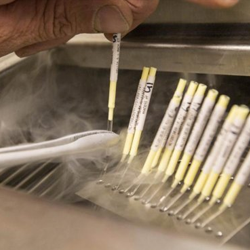
Freezing embryos
The freezing of embryos takes place in our EU-recognized laboratory. The advantage of this is that embryo handling occurs under controlled conditions in a fixed setup. Embryos can be frozen using the One-step thaw protocol (ethylene glycol), or if you prefer, using the conventional method (glycerol). The cost of freezing is the same for both methods.
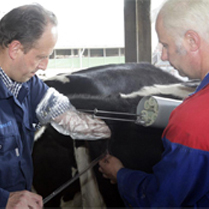
Transfer of embryo's
We offer the possibility of transferring embyros on spontaneous estrus as wel as synchronized estrus. With good observation of estrus, it is preferable to transplant on spontaneous estrus. However, considering the cost aspect, it may be interesting to transplant on synchronized estrus. We can provide you with advice based on your business situation. Rates for transplanting one-step embryos (ethylene glycol) and conventional embryos (glycerol) are the same. Transplantation rates are tiered, meaning that the more embryos transplanted per visit, the lower the price per embryo for transplantation.
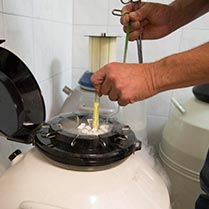
Embryo storage facility
In our laboratory, we have a storage facility where embryos can be kept under controlled conditions. Third-party embryos can also be stored here, provided that they meet the EU directive for embryo production. We do not charge any storage fees for embryos that we have collected.
Import and export of embryos
We can act as a receiving ET team for embryos from abroad. In addition, we can take care of the export procedures for your embryos. This includes ensuring proper handling of inspection requests during inspections by the responsible authorities (NVWA). We can also take care of shipping your embryos to ET teams within and outside our country.
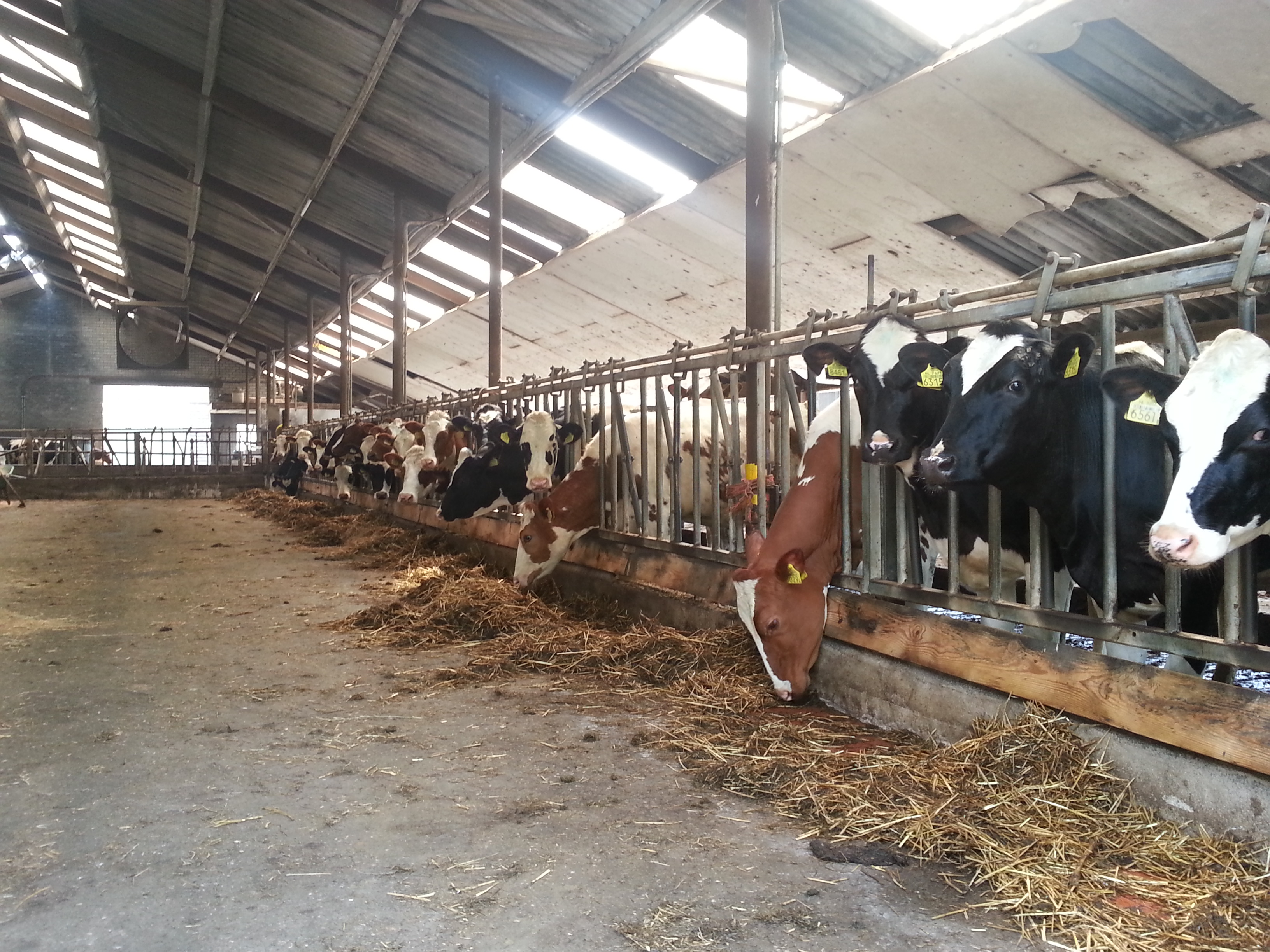
Recipient mediation
Hurkmans ET offers the possiblity to transfer your embryos on recipient farms. For this purpose, we have made agreements with several farmers who provide recipient animals for the transplantation of your embryos. You make your embryos available for transferring. We take care of the transfer and pregnancy check at 50 days. In addition, we act as an intermediary at the moment when calves are born. Agreements are contractually recorded, so that all parties have clarity regarding their rights and obligations towards each other.
Advice and support ET-procedures
We consider it very important that our customers can always rely on our knowledge and expertise regarding embryo transferring. We are therefore happy to advise and guide you in all possible matters, for example: bull selection, ET programs, synchronization schedules, nutrition and mineral supply around ET, and marketing of embryos.
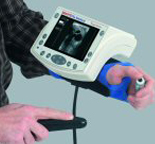
Pregnancy testing / Ultrasound
We offer the possibility to have cows checked for pregnancy in the following ways:
- Manual examination: Pregnancy diagnosis by "feeling" the uterus is done from 40 days after insemination. This is a quick and safe method of pregnancy testing.
- Ultrasound: Using our ultrasound scanner, we can detect pregnancies from 30 days after insemination. The advantage of scanning at 30 days is that animals that are not pregnant at that time can be treated immediately, allowing them to be inseminated a few days earlier. We can also detect abnormalities such as cystic ovaries or "dirty" uteruses.
We can schedule visits for pregnancy diagnosis and fertility guidance. If desired, we will make an agreed-upon schedule for this.
Last chance embryos
When cows do not become pregnant after repeated inseminations, you can call us to have a "last chance embryo" implanted. We then check the cow, and if she is suitable for transplantation, a first-quality embryo is transplanted. Pregnancy rates for last chance embryos are approximately 50%. Prices for embryos start at €100.

